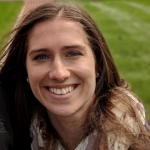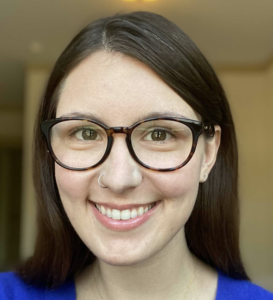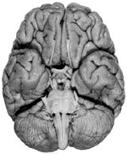Principal Investigator:
CHARLOTTE A. BOETTIGER*, PhD
*Pronunciation: [bä-‘ti-gər]
\ä\ as o in mop
\i\ as i in hit
\ər\ as ur/er in further
PhD: University of California, San Francisco (Neuroscience)
BA: University of California, Berkeley (Integrative Biology)
FACULTY MEMBER OF:
|
Dr. Boettiger accept graduate students through the UNC Dept. of Psychology and Neuroscience Behavioral & Integrative Neuroscience Program, and the UNC School of Medicine Neuroscience Curriculum but is unlikely to accept new students for Fall of 2025.
Qualified applicants are encouraged to apply for a 2 year position via the Carolina Postdoctoral Program for Faculty Diversity.
Please contact for information regarding postdoctoral and undergraduate research opportunities.
E-MAIL: CAB@UNC.EDU
|
Postdoctoral fellowS:
Graduate Students:
 Madeline Robertson, M.S.
Madeline Robertson, M.S.
BS: University of New Hampshire (Neuroscience)
MA: Northwestern University (Neurobiology)
Graduate student in the Behavioral & Integrative Neuroscience and Clinical Psychology programs
E-mail: madeline.robertson@unc.edu
 Elena Vidrascu, M.S.
Elena Vidrascu, M.S.
BS: Bucknell University (Neuroscience)
MS : Wake Forest University (Integrative Physiology and Pharmacology)
Graduate student in the Behavioral & Integrative Neuroscience program
E-mail: elena91@live.unc.edu
 Jillian Battista, B.S.
Jillian Battista, B.S.
BS : Penn State University (Biobehavioral Health)
Graduate student in the Behavioral & Integrative Neuroscience program
E-mail: jillian.battista@unc.edu
 Grace Elliott, B.S.
Grace Elliott, B.S.
BS: Boston College (Psychology)
Graduate student in the Behavioral & Integrative Neuroscience program
E-mail: gelliott@unc.edu
Undergraduate Research Assistants:
 Srinidhi Manivasagam
Srinidhi Manivasagam

